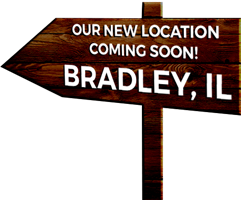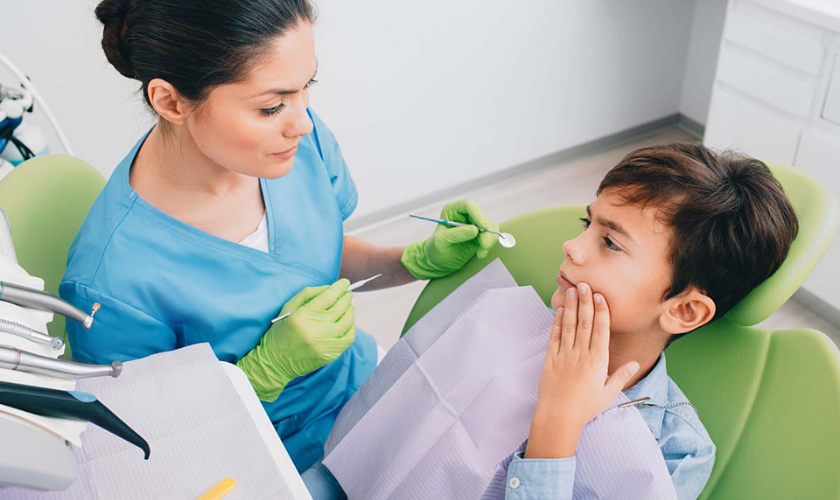Dental emergencies, much like any other emergency, can catch us off guard and leave us feeling bewildered. Whether it’s a broken tooth or severe dental pain, the last thing you want to do is panic. Acting quickly in such situations can make all the difference in saving your teeth and preventing further damage. Time is of the essence when it comes to dental emergencies, and this blog post will explain why swift action is essential for preserving your oral health. So buckle up as we take you through the importance of acting quickly during a dental emergency!
What is a Dental Emergency?
A dental emergency can be a very frightening experience. You may be in pain, have bleeding gums, or a tooth may be knocked out. It is important to act quickly and see a dentist as soon as possible. The sooner you are seen, the better the outcome will be.
There are many different types of dental emergencies, but some of the most common include:
Toothache: A toothache is usually the first sign of a problem. If you have a toothache that lasts longer than two days, or if it is accompanied by fever, swelling, or pain when chewing, you should see a dentist right away.
Bleeding Gums: Bleeding gums can be a sign of gingivitis or periodontitis, both of which are serious gum diseases. If your gums are bleeding, see a dentist as soon as possible.
Loose Teeth: Loose teeth can be caused by gum disease, trauma, or grinding your teeth at night. If you have loose teeth, see a dentist to find out the cause and get treatment.
Broken Tooth: A broken tooth can be caused by trauma or biting on hard objects. If you have a broken tooth, see a dentist right away so that it can be repaired.
Signs and Symptoms of a Dental Emergency
There are many different types of dental emergencies, but they all have one thing in common: they require immediate treatment from a qualified dentist. Some of the most common signs and symptoms of a dental emergency include:
Severe tooth pain that doesn’t go away with over-the-counter medication
A cracked tooth or broken tooth
A loose tooth or teeth that have been knocked out entirely
Bleeding from the gums or mouth
+Cuts or lacerations in the mouth, tongue, or lips
If you’re experiencing any of these symptoms, don’t wait to seek treatment. The longer you wait, the greater your risk of developing serious complications.
Reasons Why Acting Quickly is Important
When you experience a dental emergency, it is important to act quickly in order to minimize the damage and preserve your oral health. Here are some reasons why acting quickly is important:
1. To minimize the damage: The quicker you act, the less damage there will be. For example, if you have a tooth that has been knocked out, time is of the essence in getting it back into place. The longer it takes, the greater the chance that the tooth will not be able to be saved.
2. To preserve your oral health: Acting quickly can help prevent further complications and preserve your oral health. For example, if you have a tooth that is cracked or chipped, acting quickly can help prevent the crack from spreading and causing more damage.
3. To avoid costly repairs: The sooner you act, the less likely it is that you will need extensive and costly repairs. For example, if you have a cavity, acting quickly can help prevent the cavity from getting bigger and requiring a more expensive filling or root canal procedure.
4. To relieve pain: Acting quickly can also help relieve pain associated with dental emergencies. For example, if you have a toothache, acting quickly can help reduce inflammation and relieve pain.
What to Do in Case of a Dental Emergency
If you are experiencing a dental emergency, it is important to act quickly and seek professional help. Depending on the severity of the emergency, you may need to go to the hospital or your dentist’s office.
If you have a tooth that has been knocked out, it is important to try and find the tooth. If you can, gently rinse off the tooth with water and try to put it back in place. If that is not possible, put the tooth in a cup of milk or water. You will need to see a dentist as soon as possible so that they can reattach the tooth.
If you have a cracked tooth, rinse your mouth with warm water and apply a cold compress to the outside of your cheek to reduce swelling. You should then see your dentist as soon as possible.
If you have something stuck between your teeth, try using floss to remove it. If you cannot get it out with floss, see your dentist as soon as possible.
Do not wait to see a dentist if you are experiencing any type of dental emergency. The sooner you seek treatment, the better your chances are of minimizing damage and preventing further complications.
Tips for Fast Action in the Event of an Emergency
If you have a dental emergency, time is of the essence. Here are some tips for quickly and effectively addressing the situation:
1. remain calm. This will help you think more clearly and take action more quickly.
2. assess the situation. What is the nature of the emergency? Is it a toothache, loose tooth, knocked-out tooth, cracked tooth, or something else?
3. depending on the situation, take appropriate action. If you have a loose tooth, try to stabilize it with your tongue or by lightly biting down on a piece of gauze. If you have a knocked-out tooth, try to find the tooth and gently insert it back into its socket. If you have a cracked tooth, avoid chewing on that side of your mouth and rinse your mouth with warm water.
4. if you can’t handle the situation yourself, seek professional help immediately. This is especially important if you have a severe toothache or uncontrolled bleeding.
When to Seek Professional Help
If you experience a dental emergency, it is important to seek professional help as soon as possible. Waiting too long to receive treatment can result in serious consequences, such as infection, tooth loss, and damage to the jawbone.
If you are bleeding from the mouth, have a loose or knocked-out tooth, or are experiencing severe pain, you should contact your dentist right away. If you are unable to reach your dentist, go to the nearest hospital emergency room.
Once you are seen by a professional, they will be able to assess the situation and provide the appropriate treatment. In some cases, such as when a tooth has been knocked out, time is of the essence and immediate treatment is necessary.
So if you find yourself in a dental emergency, don’t delay in seeking professional help. The sooner you get treated, the better your chances of making a full recovery.
Conclusion
Acting quickly and seeking help in a dental emergency can be the difference between saving and losing a tooth. It is important to know what qualifies as an emergency, and if you think that you may have one, then it’s essential that you contact a dentist or seek medical attention right away. Even when time isn’t of the essence, it is still critical to visit your dentist regularly for checkups so they can detect any potential issues before they become emergencies. Taking preventive measures will go a long way toward preserving your oral health over the long term!
A dental emergency is any situation that requires immediate attention from a dentist. This can include things like a tooth that has been knocked out, a severe toothache, or excessive bleeding from the mouth.
In many cases, the sooner you can get treatment, the better. For example, if you have a tooth that has been knocked out, time is of the essence because there is a limited window of time in which the tooth can be successfully replanted. The longer you wait, the less likely it is that your tooth can be saved. Similarly, if you have a severe toothache, prompt treatment can help to prevent further damage to your teeth and gums. And if you are bleeding from your mouth, it’s important to get medical attention right away in case you are at risk for developing an infection.








